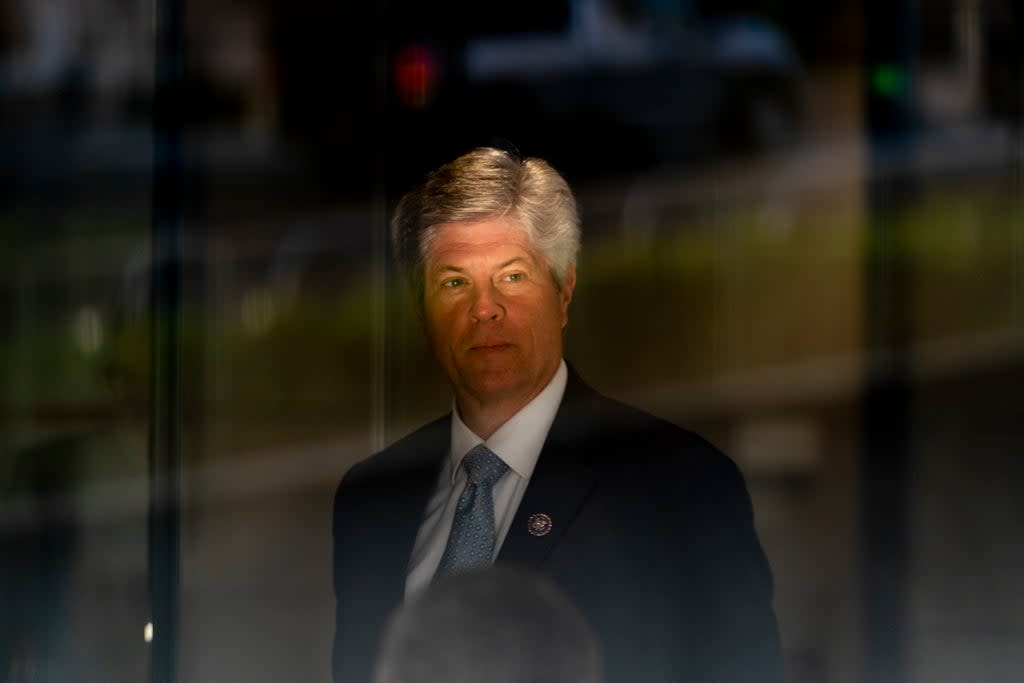Prosecutor: Congressman put himself above law and duty

A Nebraska congressman charged with lying to the FBI over an illegal $30,000 campaign donation from a Nigerian-born billionaire put his self-interest above his duty and the law, a federal prosecutor said Thursday.
U.S. Rep. Jeff Fortenberry hoped his privilege as a lawmaker would shield him from scrutiny and protect his squeaky clean reputation, Assistant U.S. Attorney Susan Har told jurors during closing arguments in Los Angeles federal court.
“You are not going to look the other way,” Har said. “The evidence has proven the defendant guilty and he can no longer avoid the consequences of his actions.”
Fortenberry, 61, a nine-term Republican congressman facing reelection, has pleaded not guilty to charges he deliberately misled FBI agents and prosecutors who were investigating the 2016 donations. It is illegal for U.S. politicians to accept foreign funds.
Prosecutors allege Fortenberry lied about what he knew during an interview at his Lincoln home in March 2019 and a follow-up meeting four months later in Washington. He allegedly didn’t properly disclose the contribution received at a Los Angeles fundraiser.
Defense lawyers said the FBI “set up” Fortenberry after a national investigation into foreign money funneled to members of Congress fizzled. They said his mistake was voluntarily meeting with agents and prosecutors and suggested he suffered from a faulty memory.
Celeste Fortenberry, the lawmaker's wife, testified Thursday that her husband loathed making fundraising calls and was often on “autopilot” when he conducted them.
The call that is central to the case is one between the doctor who held the fundraiser for Fortenberry at his Los Angeles home in 2016 — Dr. Elias Ayoub — and Fortenberry.
Ayoub told Fortenberry during the June 2018 call recorded by the FBI that he distributed $30,000 to friends and relatives who attended the fundraiser so they could write checks to Fortenberry's campaign.
He said the money had been provided by an associate of theirs and probably came from Gilbert Chagoury, a billionaire who lives in Paris. Chagoury admitted in 2019 to funneling $180,000 in illegal campaign contributions to four campaigns and agreed to pay a $1.8 million fine.
The three men in the alleged scheme to funnel the money to Fortenberry were all of Lebanese descent and had ties to In Defense of Christians, a nonprofit Fortenberry supported that was devoted to fighting religious persecution in the Middle East.
Fortenberry asked Ayoub on the phone call to organize another fundraiser with supporters of their cause.
In 2019, Fortenberry denied to FBI agents that he received any funds from a foreign national or through so-called conduit contributions, where the money was distributed to straw donors.
Defense attorney John Littrell said the recording of the call only depicted what was heard on Ayoub's end and not what Fortenberry, who had poor cellphone reception, heard.
If Fortenberry had missed as few as three crucial words, he may have missed what Ayoub was trying to tell him about the source of the money, Littrell said. The fact that Fortenberry didn't remember the call more than a year later was understandable, he said.
"This a memory test every one one of us would fail,” Littrell said.
The government misled Fortenberry about the purpose of visiting his home, telling him it was a national security issue, essentially ambushing him and his family, Littrell said. Prosecutors then packaged up statements to make them look more incriminating, using things Fortenberry both said and omitted to make them more damning, he said.
Littrell said the $36,000 his client raised in Los Angeles — most of it illegally — was a drop in the bucket for a congressman in an uncompetitive district with a healthy war chest.
“Do you think he would put his reputation on the line for $30,000 when he had $1.5 million?” Littrell said. “That's not possible.”

 Yahoo News
Yahoo News 
